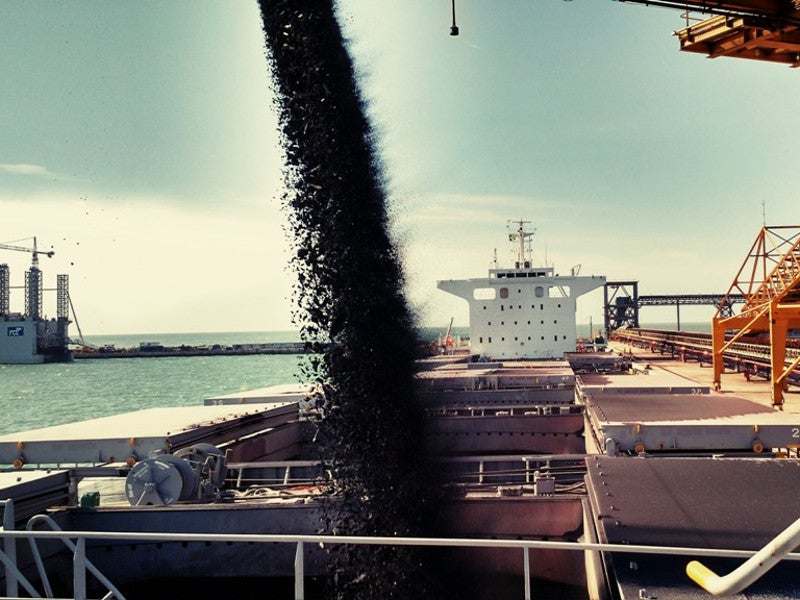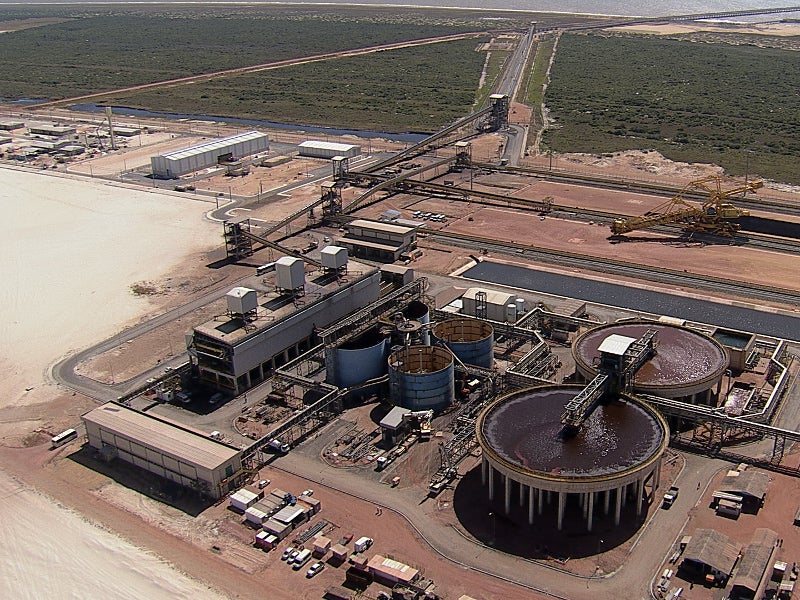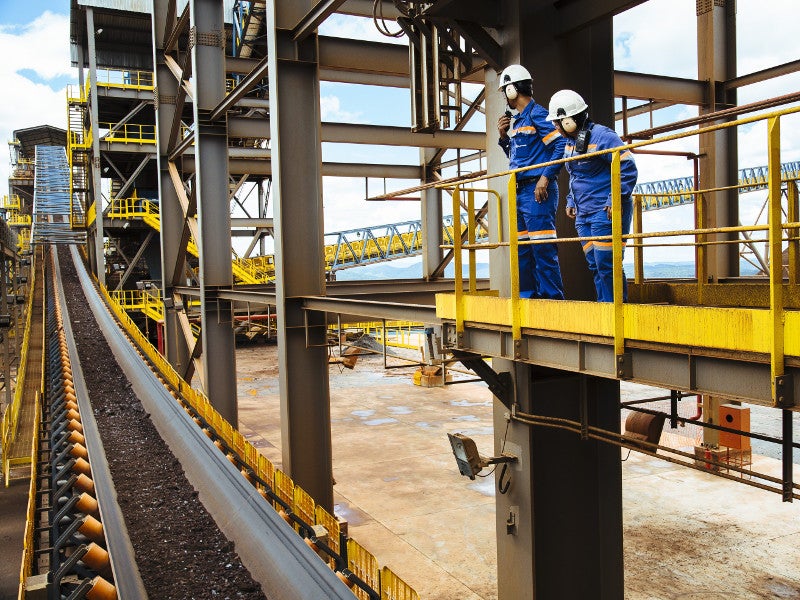Minas-Rio is an integrated iron ore mining operation located in Minas Gerais, Brazil. Anglo American owns and operates the project through its wholly-owned subsidiary Iron Ore Brazil.
The iron ore mine that commenced production in October 2014 is being developed in three phases with a total estimated investment of £5.4bn ($8.4bn).
Phases one and two have been completed and the on-going phase three expansion is expected to increase the annual production capacity of the mine to 26 million tonnes (Mt).
The mine life of the Minas-Rio iron ore project is estimated to be 48 years.
Minas-Rio iron ore mine expansion
Anglo American received regulatory approval to extract higher-grade iron ore from the Step 3 license area of the Minas-Rio mine in December 2018.
The height of the existing tailings storage dam for the mine was increased to accommodate the ore production under phase three expansion in August 2019.
Anglo American received an operating license for the expanded tailings storage facility in December 2019.
Location, geology, and mineralisation
The Minas-Rio iron ore mine is situated in south-eastern Brazil, approximately 160km northeast of Belo Horizonte. The Port of Acu in Rio de Janeiro lies approximately 500km south of the project site.
The Minas-Rio project area comprises 21 mining claims encompassing a total area of 14,882ha.
The iron resources for the project are mainly concentrated in three large ore bodies namely; Serro, Itapanhoacanga and Serra do Sapo. The present mining operation is focused on the Serra do Sapo ore body.
The Minas-Rio ore bodies form part of the Iron Quadrangle banded iron formations (BIF) in Minas Gerais.
The Minas-Rio deposits mainly contain three types of iron ore namely, friable itabirite, semi-compact itabirite, and compact itabirite.
Minas-Rio iron ore production
The total iron ore production from the Minas-Rio mine dropped from 16.8Mt in 2017 to 3.4Mt in 2018, as the production was halted due to leaks on the slurry pipeline in March 2018.
Anglo American resumed Minas-Rio operation after repairs to the pipeline in December 2018. The pipeline repair involved the replacement of 4km of the pipeline
The mine produced 4.1Mt, 5.9Mt, and 6.1Mt of iron ore in the first, second and third quarters of 2019, respectively. The total production in 2019 is expected to be 23Mt.
Iron ore reserves at Minas-Rio
The Serra do Sapo open-pit of the Minas-Rio mine was estimated to hold more than 1.8 billion tonnes of probable itabirite ore reserves grading 31.3% Fe as of December 2018. The measured and indicated resources were estimated to be 1.28 billion tonnes.
Mining and ore processing for the Minas-Rio mine
Conventional open-pit mining method involving drilling, blasting, loading, and hauling, is employed for ore extraction at the Minas-Rio iron ore mine.
Drilling and blasting techniques are used to loosen the hard rock ore material, while softer ore materials are extracted directly using dozers, excavators and front-end loaders.
The run-of-the-mine ore is trucked into a nearby ore concentration and beneficiation plant where it undergoes three-stage crushing, two-stage grinding before flotation and thickening.
The recovered iron ore concentrates are sent in slurry through a 529km-long pipeline connecting the Port of Acu in Rio de Janeiro. It is considered to be the longest iron concentrate pipeline in the world.
The slurry pipeline, 24in to 26in in diameter, with two pump stations, 10 pressure monitoring stations and one valve station is designed to transport up to 26.5Mt of iron ore a year.
The slurry ore is dewatered at a filter plant before shipping to customers from an export terminal at the Port of Acu.
Iron ore off-take from Minas-Rio
Anglo American signed an £11.4bn ($15bn) iron ore supply agreement with Bahrain Steel to annually supply 8Mt of pellet feed from the Minas-Rio mine for a period of 20 years in May 2019.
Contractors involved
Ausenco provided basic and detailed engineering services as well as operations control systems for the Minas-Rio slurry pipeline.
Ausenco, in a joint venture with SNC Lavalin, was also engaged for the feasibility study for the mine’s iron ore transportation system.





